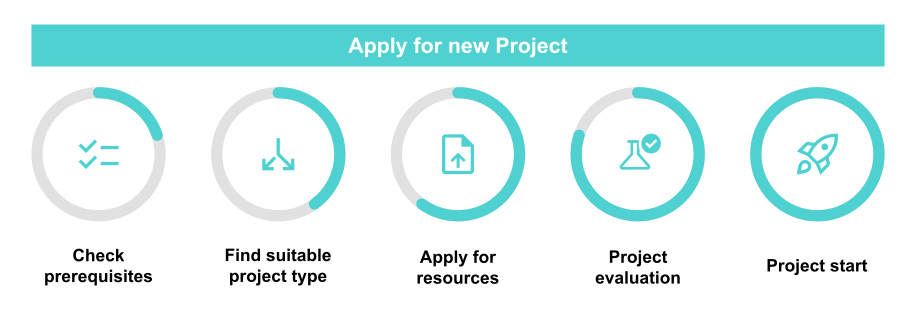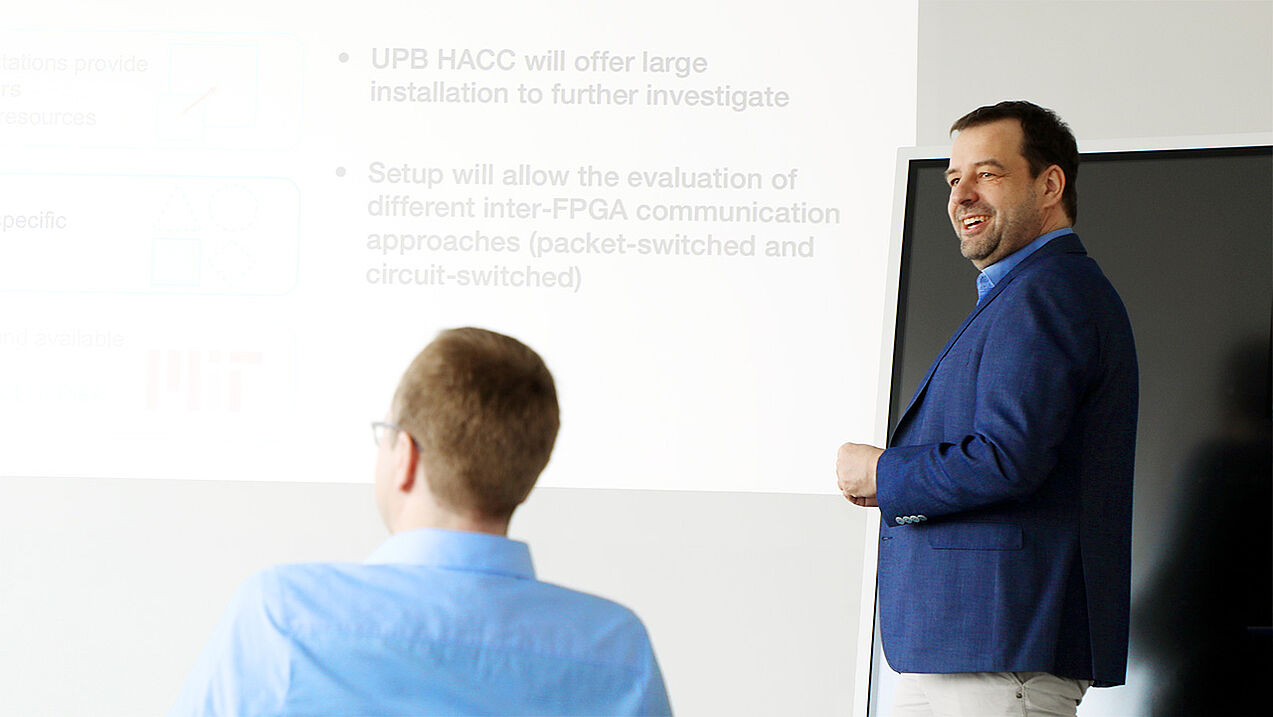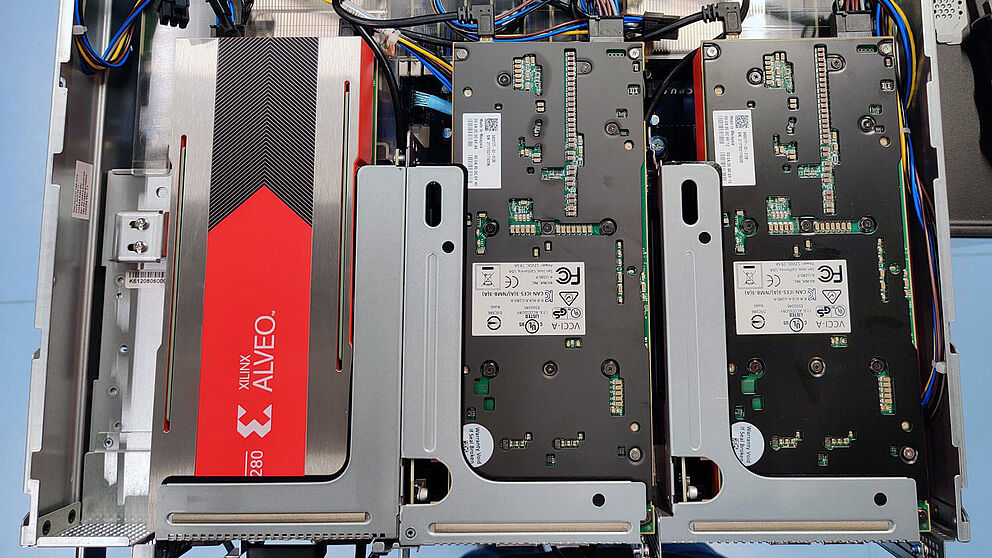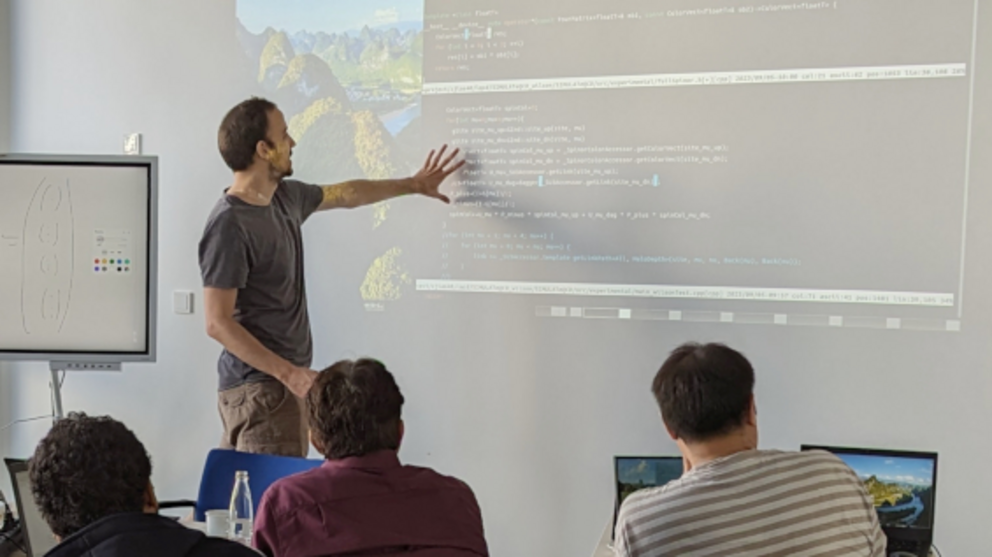System Access
Scientists at German universities can apply at the Paderborn Center for Parallel Computing, PC2, for free access to our supercomputers for research purposes as part of the German National HPC alliance (NHR) network. In addition, there are simplified access routes for users from Paderborn University and the state of North Rhine-Westphalia, as well as options for international users. The following information will help you to find the right way to apply for access. If in doubt, our support team will also be happy to help you.
If you need information for a existing compute project (project extensions, reports, etc.), please see the information page for existing projects. You can now request to migrate compute contingents from existing projects to the new HPC system Otus.

What we offer
Steps in Application Process

If you want to apply for computing time resources, you can go through the following steps. If you look for specific information, you see a summary of the contents for each step.
Step 1: Check the prerequisites if you meet the criteria for applying for resources
- Formal regulations
- List of FAQs
Step 2: Check your resource needs to find the right project type
- Types of projects
- Yearly resource budgets
- Project prerequisites
Step 3: Apply for resources
- Submission process
- Guides to apply
- Templates for detailed description
- Examples for hypothetical projects
Step 4: The project proposal is reviewed
- Technical and scientific review process
Step 5: After positive review, the project starts
- Typical duration to project start
- First steps for existing projects
Information for Existing Compute Time Projects

Step 1: Project start. See above at “Steps in Application Process”
- Check the prerequisites
- Find the right project type
- Apply for resources
Step 2: Manage your running compute time project
- Get or modify access (user accounts and project membership)
- Migrate between the HPC clusters, modify the project duration, compute contingent, or file system quota
Step 3: Reporting
- (For multi-year project only) Short progress report
- Acknowledgment statement for publications
- Templates for reports
Step 4: (Optional) Extend project duration
- Process to extend a running project
Step 5: Project end
- Data management
- Final project report
Reach out to us

If you still have open questions or need support, please
- visit our online weekly consultation hour or
- contact us via our support channels



